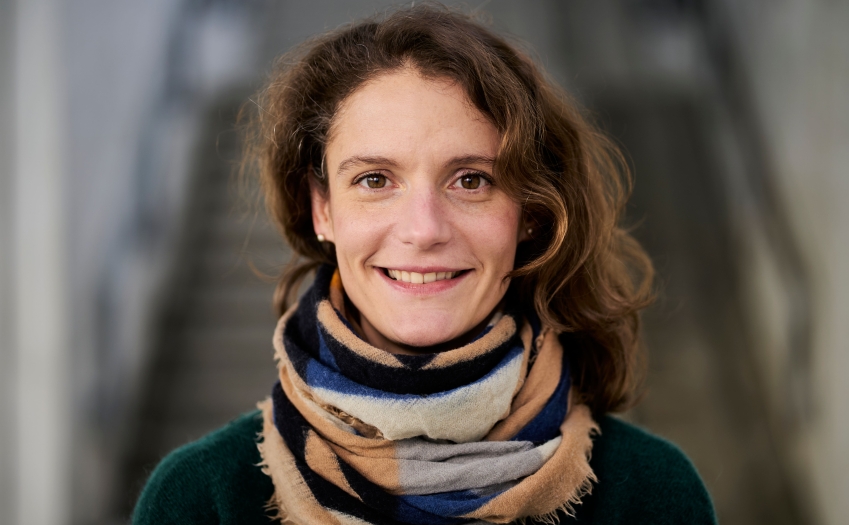News

INTERVIEW with 2021 R. L'HERMITE MEDALLIST, KLAARTJE DE WEERDT
Dr Klaartje De Weerdt is a Professor at the Department of Structural Engineering, Faculty of Engineering Science of the Norwegian University of Science and Technology (NTNU), Norway. Dr De Weerdt has been a RILEM member since 2007. She is the Deputy Chair of RILEM TC ASR “Risk assessment of concrete mixture designs with alkali-silica reactive (ASR) aggregates”, and member of several TCs. Dr De Weerdt’s field of research is concrete with expertise within cement hydration and durability. Dr Weerdt is the 2021 Robert L’Hermite medallist. Her presentation at the 75th RILEM Annual week was titled “Chloride binding – investigations and knowledge gaps”.
****************************************************************************************************************************************************************************************************************************************************
RIM: Congratulations for this award, Klaartje! Can you tell us more about it, please?
Dr De Weerdt: I am originally from Belgium. At the end of my M.Sc. in civil engineering at KULeuven (2005), I got and took the opportunity to do master project on concrete admixtures at SINTEF/NTNU in Trondheim Norway through the Erasmus student exchange program. That’s where I got hooked both on Norway and on Concrete. In 2006, I started working at SINTEF as a PhD student within a larger research project focusing on concrete, called COIN. There were several industrial partners involved in the project and amongst them “the one and only” Norwegian cement producer. My PhD research gave the scientific foundation for the development of a new cement. Based on this, a new cement composition was introduced to the marked which is nowadays one of the most used cements in Norway! That was the start of a very good connection with that cement producer and a general connection with (and support from) the cement industry. After my PhD, I worked a couple of years as a researcher at SINTEF. In 2012, I started a post doc at NTNU focusing on durability aspects of marine exposed concrete. This then led to the professorship within building materials at NTNU. For the first five years, the position was sponsored partly by the Norwegian concrete association, the Norwegian association of concrete repair, the Norwegian public roads administration and the cement producer. Through all my career, the R&D manager of the Norwegian cement producer, Dr. Knut O. KJELLSEN (Editor’s note, Dr Kjellsen has been a RILEM member since 2012), has been a colleague and mentor of mine and it was him who told me “Klaartje, you really should apply for the RILEM medal”. So in 2016 I applied for the Colonnetti medal but I was not successful.
RIM: 2016 was the year of the establishment of the Colonnetti medals. The medallists that year were Ruben Snellings and Susan Bernal Lopez. Very tough competition!
Dr De Weerdt: I know, I know! I had the pleasure to work with both of them and I know how good they are!
RIM: … and then you applied in 2020 for the 2021 L’Hermite medal.
Dr De Weerdt: Yes! It was again Knut who called me and said “Klaartje, apply!”. But I was thinking “Did you see the previous medallists? I am not in that league!”. Finally, he convinced me to apply and here I am!
RIM: The last female candidate to win this medal was Alexandra Bertron in 2014. It was time now to have another female medallist!
Dr De Weerdt: To be honest I still do not quite understand why I got it, but I am very happy to have it! (Editor’s note: the 2021 Robert L’Hermite jury confirmed that Dr De Weerdt received the medal because she was simply the best candidate, and that she did not get any “bonus points” because she happened to be female).
RIM: When did you join RILEM?
Dr De Weerdt: My first RILEM activity was actually a RILEM PhD course which was organized by Prof. Mette Geiker at DTU, Denmark. The course lasted for 6 days and contained both theory and lab exercises. It was in the start of my PhD project so I suppose it was 2007 (Editor’s note: it was the DTU-RILEM Doctoral course “Rheology of cement-based materials”, 19-24 August 2007). Participating lecturers were Olafur and Jon Wallevik (Iceland), Nicolas Roussel (France), Robert Flatt (Switzerland), and Francois de Larrard (France). We were a group of about 15 students. Besides the lectures and discussions, we were doing some experiments in the lab and wrote a report at the end of the course. Many of the participants are now researchers at various universities, authorities and research institutes. These courses are very important both with regard to sharing state of the art knowledge and network building. RILEM is able to collect the best researchers within a field. From my own experience these are very important networking events both for PhD students and researchers. In the meanwhile I have organized a RILEM PhD course at NTNU myself on “Hydration and Microstructure Characterization of Cementitious Materials” in 2018. We are planning to teach it again next spring (2022), if the COVID pandemic allows us.
RIM: You joined RILEM in 2007 and you have stayed in RILEM since then, in a very active way!
Dr De Weerdt: There are many interesting TCs, so if I would have had the time I would have liked to have joined more of them. For example, the TCs on alkali activated materials seem very interesting as alkali activated materials represent an extreme material (Ca-deficient) and therefore challenges accepted theories and test methods. The TCs I have participated in (Editor’s note: 209-RFC, 258-AAA, 267-TRM, EBD) are generally TCs with a topic on which we have ongoing research projects. Meaning that we can contribute with new research results, we can present our results for an international teams of experts and get a good discussion going, participate with testing and none the least introduce master or PhD students or researchers active in the projects to a larger research network through RILEM. The most recent TC I have joined as a member is the EBD, “Test methods to evaluate durability of blended cement pastes against deleterious ions”. I am active in the work package (WP) dealing with chlorides. It is very relevant for some of the research we have been doing in our research group. We have had some really nice discussions so far 😊 I am very much looking forward to work in that team.
RIM: Which was your role in TC 258-AAA, “Avoiding alkali aggregate reactions in concrete - Performance based concept”?
Dr De Weerdt: I was WP leader (WP4 – verification of alkali release from aggregates), and was thereby part of the organizational team. This gave me some insight on how a TC is run.
In addition, I learned a lot about the “pre-normative” role of RILEM, i.e. providing a scientific basis for future norms and test methods. The TC focused on accelerated test methods for ASR and field verification. This is an important topic as there is wide variety of national test methods for ASR, and there is for example no European standard for testing for ASR. For other degradation mechanisms such as chloride ingress we do have unified European standard and e.g. also very similar ASTM standards. The TC is an international arena to discuss and compare test methods. I got through this TC a better understanding of why test methods can be different from country to country (e.g. different degradation mechanisms, exposure conditions or concrete types) and what are the challenges towards unified standards.
RIM: Was that insight on how a TC works that lead you towards the establishment of the RILEM TC ASR “Risk assessment of concrete mixture designs with alkali-silica reactive (ASR) aggregates” that you now Co-chair?
Dr De Weerdt: Many of the members of the new TC ASR were member of TC 258-AAA. One of those was Prof. Jason H. IDEKER, with whom I co-chair TC ASR. The TC focuses on concrete mixture designs with alkali-silica reactive (ASR) aggregates from a risk assessment point of view. We lead the TC together with a great team of workpackage leaders. We shaped this TC in the middle of COVID which is kind of a challenge. Luckily, we had thoroughly discussed the description of the TC activities and deliverables with a large group of researchers prior to COVID. So, there is ownership in the tasks the members signed up for. Many of us are really looking forward to the ICAAR 2020-2022 Lisbon as the first event where we will be able to meet in person again. The ASR research community is a great community to work in. Though the great advantage of the pandemic and having our meetings digitally is that we have members joined the TC meetings that else haven’t been able to join for meetings for example some members from Australia.
RIM: We are all looking forward to the next in-person event. Fingers crossed we can meet soon.
Dr De Weerdt: It would be lovely!














No comment
Log in to post comment. Log in.